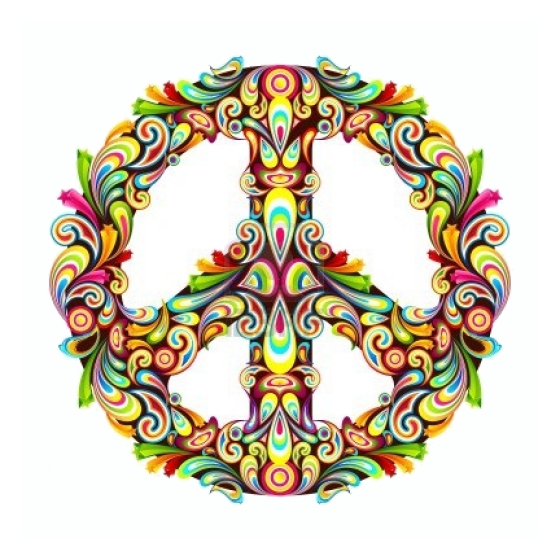
It seems that the extensive growth of information technology has made the world more connected than ever. It brings the world much closer since its role as the main facilitator and driving force of globalisation, which primarily regarded as being about the interdependence of societies on a world scale, existing links and those that can be developed globally between individuals, communities, nations and organisations (Harvey, 2003). Globalisation has strong impact on economics and social matters. It gives bigger opportunity for international trades and investments. But along with the upsides, it is suggested that globalisation can also endanger the harmonised society. But I believe, diversity can bring no harm if we, especially youth, actively spread values such as peace, empathy, active listening, and non-violence communication to support and sustain living in harmonised society.
Identity can be defined as the distinctive and collective characteristics and aspects belonging to any individual or shared by members of a group, by which they will be recognised. But in globalisation, there’s such thing as global identity which Javanmardi (2013) stated that it does not necessarily distinguish a human being with different levels such as attributes, namely; gender, racial, national, cultural, ethnical, class, profession and etc, however it contains all of them. This implies that at a global level, an individual does not distinct identity among these mentioned attributes. According to Suarez-Orozco (2003), increasing globalisation has stimulated an unprecedented flow of immigrants. According to UN statistics in 2015, the number of global immigrations increases year by year. As comparison, in 2005 the number of immigrants in United State is around 39 millions people, in 2015 it becomes around 46 millions. The USA has the highest total number of immigrants, being home to 19 per cent of the world’s immigrants. It strongly assumed that the high number of immigrants has correlation with economic motives that stimulated by globalisation. With the high rate of immigration flow, it also encourages the emerging and broader range of cultural, religious, linguistic, racial, and ethnic backgrounds in society.
If the diversity is dealt with lack of social values such as empathy, peace, and tolerance, it’s likely can instead lead into some misunderstandings, violent clashes, or even radicalisations that can lead into terrorism. It’s reported that some 750 million people face socio-economic discrimination or disadvantage because of their cultural identity (UNFPA Report, 2008) and also shows that global economic impact of violence is USD 9.8 trillion or 11.3% of global GDP (Global Peace Index, 2014). The damage doesn’t stop there, terrorism which is driven by lack of respect for human rights and tolerance often used as a threat of violence to further a political cause, has made it even worse. From the data of Global Terrorism Index in 2015, terrorist activity increased by 80% in 2014 to its highest recorded level. Ninety-three countries experienced a terrorist incident in 2014, targeting private citizens more on their attacks and causing the economic cost to its highest ever level in 2014 at US$52.9 billion. This is a 61% increase from the previous year and a ten-fold increase since 2000. So it appears that globalisation brings a great destruction of cultural identity and harmonised society.
But is it reasonable to attribute the globalisation with destruction? Is it utopia for us to have a harmonised society in diversity? The problem with this view lies on how we cope with diversity. It should be appreciated and celebrated instead of making it as a bullet to harm others. We especially youth should actively involve to promote peace and respectful non-violence environment and communication to value diversity in order to achieve a harmonised society. Why youth? Global youth population swells to record 1.8 billion with 89% reside in less developed countries (Time, 2014). In Indonesia there’s 25.8% population of youth. Looking at the statistics, young people clearly are the biggest stake holders of the future, making us as very prospective agents of change. There are certainly many things that we can do. I believe the fundamental of valuing diversity started from ourselves. First, we have to understand our own identities, cultures, and how we want to be treated. We have to implement empathy, active listening, and non-violence communication as our value-based mindsets and behaviours in our daily bases. Then, we should make them as contagious as possible. The keys of promoting radicalisation are media and propaganda. So why not spreading empowering information as massive as they do. Use social media wisely to broadcast peace message Stay informed with what’s going on with the world through internet, TV, and newspapers and try to contribute as much as possible. Be a mentor for younger people in empowerment program at school or local community. Don’t discriminate, make a group study or group discussion unexceptionally. Propose to engage partnership with external actor who can deliver the values in after school activity. Actively involved in community based activity such as sports, art, music, and theatre. Be in a volunteering program to create social connection, develop sense of belonging, and don’t forget to share the experience. Last but not least use political right to vote for candidate who support harmonised society.
If young people actively promote peace and spread values such as empathy, active listening, and non-violence communication in many ways, the diversity as consequence of globalisation certainly won’t be a threat anymore. We could eliminate all the “dark sides” of globalisation such as violence, discrimination, and terrorism led by radicalism. The main root cause is the lack of respect for human rights and tolerance. By nourishing the values in ourselves, breaking the silence, and starting to act something for the sake of humanity, I believe, we can achieve a global harmonised society with the ability to bridge, respect, and celebrate all the differences as they should be, as Scott Adams said, there’s no such thing as a small act of kindness. Every act creates a ripple with no logical end.



